
By definition, gamification involves the use of elements of a computer game for marketing or other non-game purposes. Adding gamification to a marketing campaign can unleash benefits that, just a few years before, were undreamed of.
A successful advertising and marketing campaign that was used by Droga5, a New York ad agency, maximized on gamification. In the end, two of their clients benefited immensely.
Bing and Jay-Z
The first client was Bing, which wanted to capture a younger audience to make use of their maps and search engine. The other client was rapper Jay-Z, who was about to launch his autobiography, Decoded. Both clients’ goals were met through gamification, and the merging of interests was mutually beneficial.
Gamification was used to build up buzz for Jay-Z’s book, particularly aimed at an audience who doesn’t usually read books. The provider, Bing, became the source that an interested audience would have to go to, if they wanted to play the game.
One month before Jay-Z’s book was published, a page of the book was hidden in unexpected places in 13 US cities and the world, every day. The page could be on a billboard, the wrapper of a hamburger, a vehicle wrap or the lining of a Gucci jacket.
The page’s content determined where the page would be hidden. Clues were placed daily on Facebook, Twitter and on the radio, so people could look for the page using Bing’s search engine and maps.
Whenever a player found a page, he or she could claim it at Bing.com/Jay-Z. By the end of the game, the entire book was compiled – before the hardbound version even hit the bookstores.
Was this campaign successful? Yes. Through gamification, average website engagement was 11 minutes. Jay-Z earned 1 million new followers on his Facebook page that month. His book, Decoded, was a bestseller for 19 weeks. It also got major, big time news coverage by important cultural influencers.
Bing was a big winner, too. It had an 11.7 increase in visits in one month, and 1.1 billion media impressions. For the first time, it ranked globally among the top 10 sites.
Inverstorville
Another example of gamification was used by Commonwealth Bank. They used a game called Investorville to allow players to try investing with the help of actual market data. In the end, the site had more than 100,000 visitors. Of the total, 23,000 registered their details, and 630 took out loans. The resulting PR generated by the game reached over 6.6 million people.
Strategic Gamification
If you plan to incorporate gamification in your marketing program, ask yourself the following questions:
- What is the main objective of your game? For example, do you want to network, educate, or get people to attend your event?
- How can technology be used to maximize reaching your objective?
Once you've answered these questions, you can either design your own game or hire a professional. Below are some games you can consider for your event’s marketing campaign:
- Have a contest. Use social media to generate buzz through your contest. A good source to help you with this is Rafflecopter, which offers a free plan to get you started.
- Use photographs. At the event, ask attendees to take photographs, and post the pictures on your event’s Facebook page, as well as their personal Facebook page. Offer a reward for the top 10 best photographs. If you want, you can add rules to the photos. For example, if the event is a car launch, the photo should be near the car. This will add further publicity mileage to the product that was launched.
- Create a game around your product. If your product is a vacuum cleaner, you can create a “coolest, cleanest crib” game where the player chooses his crib (home), and then starts cleaning it. First, they can do so with a dishrag. Then, the player collects points to level up to a broom and eventually to the brand of the vacuum cleaner that you are promoting. The player can also tag friends to help them in the game, in this way enlarging the number of people who will be exposed to your product. Related: QR Me Hearties: Setting a QR Code Treasure Hunt
- Use quizzes. This is helpful if you are promoting a trade convention. You can ask each booth participant to prepare a quiz related to their product one month before the event. Then, through social media (Facebook, Twitter, and your trade event website) post a quiz every day. Participants can post their answers on the trade website. Whoever wins the quiz first can get a prize.
- Create an invention. If you are marketing an inventor’s convention, you can create an invention game where players can choose their materials and create inventions themselves. If their invention is logical and workable, they gain extra points. If it is an impossible or flawed invention, they must try again. Each day, players can post their points on the Inventor’s Convention website. The top five winners can get free tickets to the Convention or get a special “patent” for their inventions.
Special Tips
- Make sure that the rules of your game are very clear and understandable to participants. Also, score keeping must be flawless. The rewards should be something worth playing for. At the same time, the reward should reflect what you are promoting.
- Maximize on social media. Linkedin, Google+, Facebook and Twitter can all be used to spread the word about your game, and should lead people to your website.
- Go beyond the game. True, you are marketing an event. But, you can go beyond the use of the game for these purposes. You can use it to build relationships with your target audience and to reach out to them even after the event. It can generate continual buzz. This was what happened to the event collaboration between Jay-Z’s book and Bing. Be clear about your objectives when you create your game. Do you want the buzz to generate attendance to your event, or do you want your game to help meet long term goals as well?
Have you ever used gamification to market your events?
Share your story in the comments below.
Photo by Andres Rodriguez
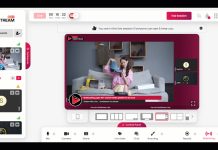
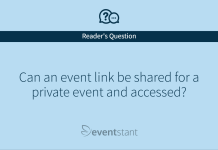
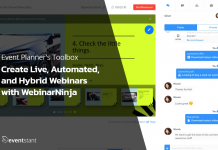
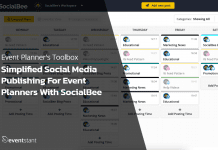
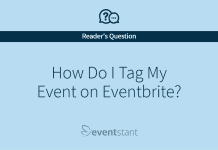
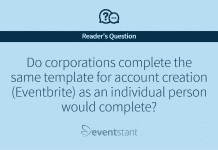

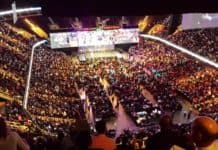

![How Important Are Face to Face Meetings [INFOGRAPHIC]](https://eventstant.com/wp-content/uploads/faceToface_v11-sm-218x150.jpg)


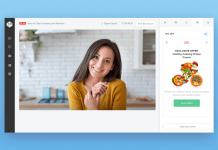
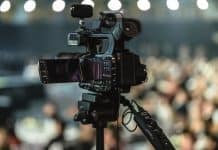






I love the idea of gamification, and I’ve honestly heard great things about it. Anything that requires potential customers to get involved is useful and great!
Thank you for your kind remarks! What struck me in the example of Jay-Z is that he targeted non-readers and got them to read his book. Gamification can actually change the behavior and habits of people.